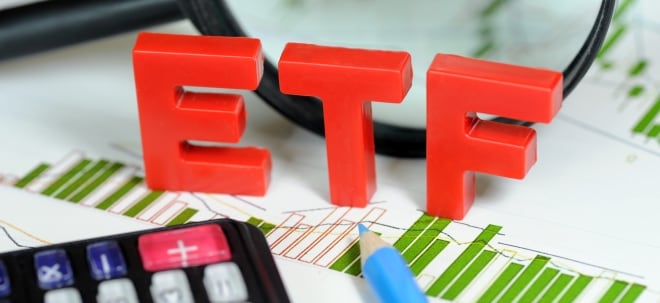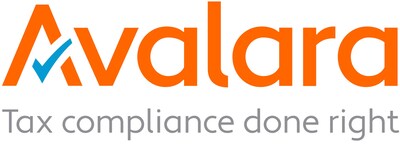Avalara Survey Shows Gig Economy Workers Caught Off Guard by Lower 1099-K Reporting Threshold
- New research commissioned by tax automation provider Avalara shows 61% of gig economy workers are unaware of recently lowered 1099-K reporting thresholds aimed at capturing unreported online sales income
- 73% of gig workers surveyed don't know the payment threshold above which they would receive a Form 1099-K and be required to file an IRS tax return
- Over 20% of respondents plan to pay a tax professional for the first time as a result of 1099-K reporting changes and complexity
DURHAM, N.C., Jan. 30, 2025 /PRNewswire/ -- Avalara, Inc., a leading provider of cloud-based tax compliance automation for businesses of all sizes, today released findings from a new survey* of gig economy workers – including online marketplace sellers, digital content creators and influencers, short-term rental hosts, and rideshare and delivery drivers – who are now faced with a lower threshold for 1099-K income reporting to the IRS.
The reporting status for these independent workers has been in limbo for several years since Congress voted to reduce the 1099-K reporting threshold from $20,000 to $600, thus requiring payment apps to report significantly more transactions to the IRS. Though the lowered threshold was delayed at the end of 2023, in November 2024, the IRS announced a three-year phase-in to the $600 threshold, beginning with a new $5000 1099-K threshold this tax year, then a follow-on reduction to $2,500 in 2026, and finally a $600 threshold in the 2027 tax season.
Gig workers broadly unaware of 1099-K threshold changes
While 61% of respondents claim to be knowledgeable about Form 1099-K and its purpose, an equal 61% do not know that the 1099-K reporting threshold is lower this year and subsequent tax years. In lockstep, a robust 74% of gig workers surveyed cannot identify the payment threshold above which they would be required to report income to the IRS in 2025. And for subsequent tax seasons on the road to a $600 1099-K reporting threshold, only 18% surveyed could identify the correct threshold for 2026 and the final $600 reporting threshold for the 2027 tax season.
Bottom line financial impacts from new reporting thresholds
Survey respondents offered differing predictions for how they would fare in the midst of new income reporting requirements: 37% think their business will be profitable following tax season, 36% responded that they'll likely break even, and 17% predict they'll lose money due to the IRS changes.
Tax professionals to the rescue
More than one-third (37%) of gig workers surveyed said this is the first year they're receiving a 1099-K, so it's no surprise that 21% of respondents plan to open their wallet for a tax professional for the first time. Another factor in seeking professional advice could be the number of gigs these workers are juggling: 75% of survey respondents have two or more sources of income, 45% have three or more, and 16% have four or more. Accountants and bookkeepers will be essential to helping 1099-K newbies sort out the reporting and tax implications of multiple income sources.
Gig workers' post-tax season plans are all over the map
Avalara's survey also revealed how respondents plan to move forward with work choices, payment transaction strategies, and handling tax-related responsibilities following this tax season. For instance, to avoid crossing the $2,500 1099-K threshold next year, over 20% of workers are quitting one or more of their gig economy jobs and 19% are changing their earnings strategy. 15% will be using tax software for the first time. Still, another 20% plan to take on more under-the-table work, and 15% will switch to Zelle to avoid IRS reporting rules associated with platforms like PayPal and Venmo. A full 40% of those surveyed say they'll take on one or more additional gig economy jobs. And, not surprisingly, 16% of survey respondents say they're leaving the gig economy altogether and pursuing different work.
"Our survey data reveals the urgent need for basic knowledge and orderly direction on the part of gig economy workers to determine how best to comply with the lowered 1099-K digital payments threshold," said Kael Kelly, General Manager, Avalara 1099 & W-9. "This scrappy segment of our economy demonstrates DIY drive in creating a living from engaging in multiple jobs, non-traditional work, and sometimes essential services that support how consumers want to buy and receive goods and services – and they're now faced with the additional challenge of sorting out new, last-minute tax regulations and reporting requirements. Businesses of all sizes, including independent workers, need a fast, robust, easy, and affordable way to e-file 1099 forms, and that capability is within reach through modern cloud software."
About Avalara
Avalara makes tax compliance faster, easier, and more accurate, reliable, and valuable for 41,000+ business and government customers in over 75 countries. Tax compliance automation software solutions from Avalara leverage 1,200+ signed partner integrations across leading ecommerce, ERP, and other billing systems to power tax calculations, document management, tax return filing, and tax content access. Visit avalara.com to improve your compliance journey.
*Methodology:
The research was conducted by Censuswide, among a sample of 1,001 U.S. gig economy workers (aged 18+). Minimum of 200 respondents (per option) who best describe their gig economy work as 'Content creation / influencing (TikTok, Instagram, LinkedIn, etc.)', Selling on an online marketplace (eBay, Poshmark, Facebook Marketplace, etc.), or 'Short-term rentals (Airbnb, Vrbo, Homestay, etc.)'. The data was collected between 1.15.2025 and 1.17.2025. Censuswide abides by and employs members of the Market Research Society and follows the MRS code of conduct and ESOMAR principles. Censuswide is also a member of the British Polling Council.
![]() View original content to download multimedia:https://www.prnewswire.com/news-releases/avalara-survey-shows-gig-economy-workers-caught-off-guard-by-lower-1099-k-reporting-threshold-302363987.html
View original content to download multimedia:https://www.prnewswire.com/news-releases/avalara-survey-shows-gig-economy-workers-caught-off-guard-by-lower-1099-k-reporting-threshold-302363987.html
SOURCE Avalara, Inc.


